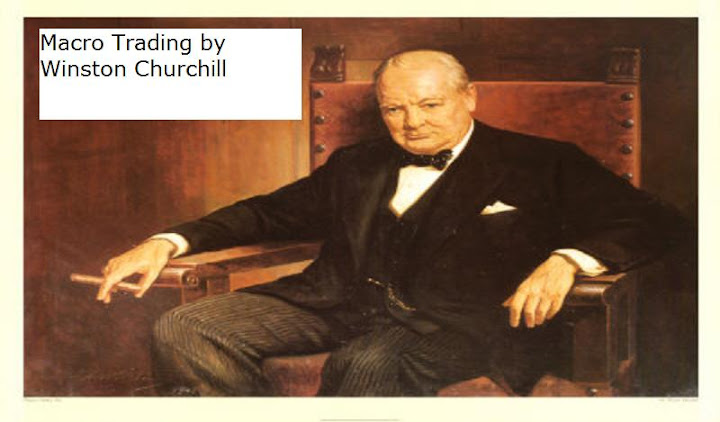- Quick run through on this Sunday, but the most important chart being this one: China leads SPX - clearly...and every time!
- Nasty momentum close for SPX: SPX momentum
- Yields since QE2 - not good for FED: Yields since QE2 Yields
- The Secret of Oz: Excellent crisis history piece which has won several tv prizes: TV documentary
- Ireland: Follow the news from Irish Times: Irish Times
Strategy:
Still playing it flexible - long put on commodities, spx, and long US dollar, but still small deltas despite Fridays move - remain extremely sceptical and on the alert for November being the BIG TURNAROUND MACRO MONTH for the year, but all market held where they should; Gold 1360 - EUR and 10 yr yield - VIX is just shy of break-up but not confirmed - now everything hinges on the Ireland to use EFSF or not for the next 48 hours,
The risk being; and this is something I firmly believe in, due to cognitive behaviour, that using EFSF will be postive for less than 24 hrs.
If rates are now higher than pre deal in May, why should deal in November help ? Europe, like the FOMC is running out of options and fast. A Break-up of Europe into two divisions are on the cards.
Reflexitivity is at work. The trend led to credit bust in 2008, then the loop-feeding led to today' new bubble in credit/bonds, now we could face the unwinding of 30 years cycle - the ever lower rates will not work, and finally as someone said this week:'When in history has higher inflation led to lower rates?' - Indeed, indeed.
Steen
A few good bites below:
http://www.cnbc.com/id/40152003
If you were counting on the big U.S. banks to restore or increase dividends that were pared back or ended during the financial crisis, you might want to think again.
The final portions of a prepared speech by a top Federal Reserve official seemed aimed at pulling-back market expectations that the central bank would soon authorize a resumption of dividends.
The Fed has been preparing guidelines on how banks will be able to change their dividend policies in the first quarter of next year. When that news was reported last week—the Wall Street Journal's headline was "Fed to Let Banks Increase Dividend" — the stocks of several banks rose.
But Fed governor Daniel Tarullo appeared to be trying to tamper the exuberance over the new Fed guidelines.
"Although the details of these guidelines are still being finalized, I can say that our approach to considering such requests will be a conservative one," Tarullo said at a George Washington University Law School Conference on the Dodd-Frank regulatory reforms. (You can read the full speech here.)
Tarullo said that banks will need to show that they can handle risks not captured in the government's stress tests—including the risk of put-back exposure.
"We will expect firms to submit convincing capital plans that demonstrate their ability to absorb losses over the next two years under an adverse economic scenario that we will specify, and still remain amply capitalized," Tarullo said. "We also expect that firms will have a sound estimate of any significant risks that may not be captured by the stress testing, such as potential mortgage put-back exposures, and the capacity to absorb any consequent losses."
The talk about dividends seems to be directly aimed at resetting—that is, lowering—expectations when it comes to dividends. Most of the speech was about Basel III capital requirements—making the dividend discussion stand out all the more. It appears to have been tacked on with the purpose of sending the market a message that many banks may not qualify for dividend hikes.
James Grant on the US dollar: http://www.nytimes.com/2010/11/14/opinion/14grant.html?_r=1&pagewanted=print
Fed Governor Issues Warning on Bank Dividends and Mortgage Put-Backs
Getty Images |
The Fed has been preparing guidelines on how banks will be able to change their dividend policies in the first quarter of next year. When that news was reported last week—the Wall Street Journal's headline was "Fed to Let Banks Increase Dividend" — the stocks of several banks rose.
But Fed governor Daniel Tarullo appeared to be trying to tamper the exuberance over the new Fed guidelines.
"Although the details of these guidelines are still being finalized, I can say that our approach to considering such requests will be a conservative one," Tarullo said at a George Washington University Law School Conference on the Dodd-Frank regulatory reforms. (You can read the full speech here.)
Tarullo said that banks will need to show that they can handle risks not captured in the government's stress tests—including the risk of put-back exposure.
"We will expect firms to submit convincing capital plans that demonstrate their ability to absorb losses over the next two years under an adverse economic scenario that we will specify, and still remain amply capitalized," Tarullo said. "We also expect that firms will have a sound estimate of any significant risks that may not be captured by the stress testing, such as potential mortgage put-back exposures, and the capacity to absorb any consequent losses."
The talk about dividends seems to be directly aimed at resetting—that is, lowering—expectations when it comes to dividends. Most of the speech was about Basel III capital requirements—making the dividend discussion stand out all the more. It appears to have been tacked on with the purpose of sending the market a message that many banks may not qualify for dividend hikes.
James Grant on the US dollar: http://www.nytimes.com/2010/11/14/opinion/14grant.html?_r=1&pagewanted=print
.jpg)




No comments:
Post a Comment